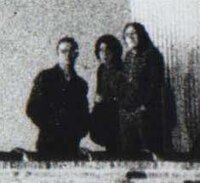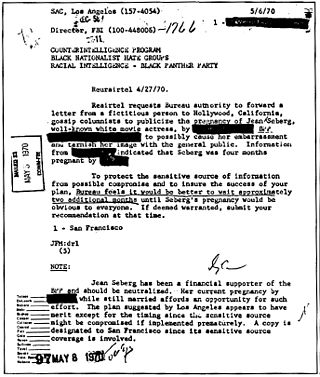
COINTELPRO was a series of covert and illegal projects conducted between 1956 and 1971 by the United States Federal Bureau of Investigation (FBI) aimed at surveilling, infiltrating, discrediting, and disrupting American political organizations that the FBI perceived as subversive. Groups and individuals targeted by the FBI included feminist organizations, the Communist Party USA, anti–Vietnam War organizers, activists in the civil rights and Black power movements, environmentalist and animal rights organizations, the American Indian Movement (AIM), Chicano and Mexican-American groups like the Brown Berets and the United Farm Workers, independence movements, a variety of organizations that were part of the broader New Left, and white supremacist groups such as the Ku Klux Klan and the National States' Rights Party.

Robert George Seale is an American political activist and author. Seale is widely known for co-founding the Black Panther Party with fellow activist Huey P. Newton. Founded as the "Black Panther Party for Self-Defense", the Party's main practice was monitoring police activities and challenging police brutality in Black communities, first in Oakland, California, and later in cities throughout the United States.
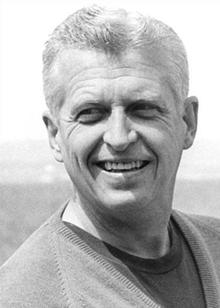
Philip Francis Berrigan was an American peace activist and Catholic priest with the Josephites. He engaged in nonviolent, civil disobedience in the cause of peace and nuclear disarmament and was often arrested.

Fredrick "Chairman Fred" Allen Hampton Sr. was an American activist. He came to prominence in his late teens and very early 20s in Chicago as deputy chairman of the national Black Panther Party and chair of the Illinois chapter. As a progressive African American, he founded the anti-racist, anti-classist Rainbow Coalition, a prominent multicultural political organization that initially included the Black Panthers, Young Patriots, and the Young Lords, and an alliance among major Chicago street gangs to help them end infighting and work for social change. A Marxist–Leninist-Maoist, Hampton considered fascism the greatest threat, saying, "nothing is more important than stopping fascism, because fascism will stop us all."
The Gainesville Eight were a group of anti-Vietnam War activists indicted on charges of conspiracy to disrupt the 1972 Republican National Convention in Miami Beach, Florida. All eight defendants were acquitted.
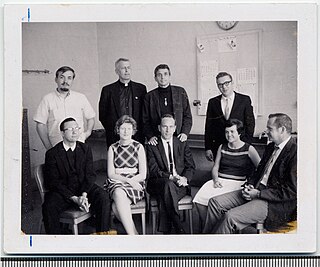
The Catonsville Nine were nine Catholic activists who burned draft files to protest the Vietnam War. On May 17, 1968, they took 378 draft files from the draft board office in Catonsville, Maryland and burned them in the parking lot.
David Rice and Edward Poindexter were African-American activists charged and convicted of the murder of Omaha Police Officer Larry Minard. Minard died when a suitcase bomb containing dynamite exploded in a North Omaha home on August 17, 1970. Officer John Tess was also injured in the explosion. Poindexter and Rice had been members of the Black Panther Party.
The Saint Patrick's Day Four are four American peace activists of Irish Catholic heritage who poured their own blood on the walls, posters, windows, and a US flag at a military recruiting center to protest the United States' impending invasion of Iraq. Peter De Mott, Daniel Burns, Teresa Grady, and Clare Grady each were members of the Ithaca Catholic Worker community, which teaches that Christians should practice non-violence and devote their lives to service of others. They each served between four and six months in federal prison for their action on Saint Patrick's Day, March 17, 2003, in Lansing, New York, near Ithaca where they reside.

Mark Clark was an American activist and member of the Black Panther Party (BPP). He was killed on December 4, 1969, with Fred Hampton, state chairman of the Black Panthers, during a Chicago police predawn raid.

The Citizens' Commission to Investigate the FBI was an activist group operational in the US during the early 1970s. Their only known action was breaking into a two-man Media, Pennsylvania, office of the Federal Bureau of Investigation (FBI) and stealing over 1,000 classified documents. They then mailed these documents anonymously to several US newspapers to expose numerous illegal FBI operations which were infringing on the First Amendment rights of American civilians. Most news outlets initially refused to publish the information, saying it related to ongoing operations and that disclosure might have threatened the lives of agents or informants. However, The Washington Post, after affirming the veracity of the files which the Commission sent them, ran a front-page story on March 24, 1971, at which point other media organizations followed suit.

In 1969-1971 there was a series of criminal prosecutions in New Haven, Connecticut, against various members and associates of the Black Panther Party. The charges ranged from criminal conspiracy to first-degree murder. All charges stemmed from the murder of 19-year-old Alex Rackley in the early hours of May 21, 1969. The trials became a rallying-point for the American Left, and marked a decline in public support, even among the black community, for the Black Panther Party.

The Buffalo Nine was a group of nine Vietnam War protesters who were arrested on August 19, 1968, at the Unitarian Universalist Church in Buffalo, New York.

The Harrisburg Seven were a group of religious anti-war activists, led by Philip Berrigan, charged in 1971 in a failed conspiracy case in the United States District Court for the Middle District of Pennsylvania, located in Harrisburg. The seven were Phillip Berrigan, Elizabeth McAlister, Rev. Neil McLaughlin, Rev. Joseph Wenderoth, Eqbal Ahmad, Anthony Scoblick, and Mary Cain Scoblick.
In the United States, jury nullification occurs when a jury in a criminal case reaches a verdict contrary to the weight of evidence, sometimes because of a disagreement with the relevant law. It has its origins in colonial America under British law. The American jury draws its power of nullification from its right to render a general verdict in criminal trials, the inability of criminal courts to direct a verdict no matter how strong the evidence, the Fifth Amendment's Double Jeopardy Clause, which prohibits the appeal of an acquittal, and the fact that jurors cannot be punished for the verdict they return.

Zoia Markovna Horn, born in Ukraine, became in 1972 the first United States librarian to be jailed for refusing to share information as a matter of conscience. Horn, an outspoken member of the American Library Association's Intellectual Freedom Committee, worked at Bucknell University in Lewisburg, Pennsylvania, in the early 1970s. Horn was jailed for nearly three weeks for contempt of court after refusing to testify for the prosecution in the 1972 conspiracy trial of the "Harrisburg Seven" anti-war activists.
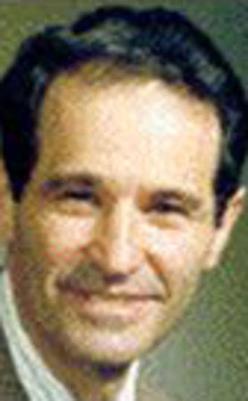
William Cooper Davidon was an American professor of physics and mathematics, and a peace activist. As the mastermind of the March 8, 1971, FBI office break-in, in Media, Pennsylvania, Davidon was the informal leader of the Citizens' Commission to Investigate the FBI. The Media break-in resulted in the disclosure of COINTELPRO, which in turn led to subsequent investigations and reforms of the FBI.

1971 is a 2014 American documentary film and the directorial debut of producer Johanna Hamilton, who also co-wrote the film. The film had its world premiere on 18 April 2014 at the Tribeca Film Festival and focuses on the break-in of an FBI office in Media, Pennsylvania on Monday, March 8, 1971, to steal over 1000 classified documents. It was pitched at the Sheffield Doc/Fest 2011 MeetMarket preceding its debut. The break-in took place on the night of the first Ali-Frazier boxing title fight dubbed the Fight of the Century.
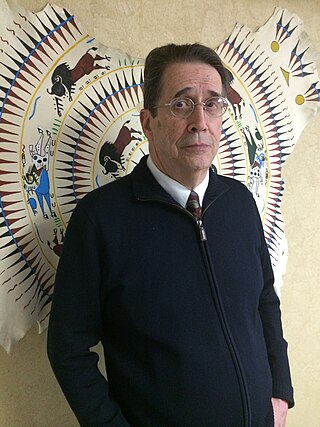
Frank Pommersheim is an American professor, author, and poet specializing in the field of American Indian law. Pommersheim is serving on several tribal appellate courts and serves as the Chief Justice for the Cheyenne River Sioux Tribal Court of Appeals and the Rosebud Sioux Supreme Court and is also notable for his involvement in The Camden 28.
RESIST is a philanthropic non-profit organization based out of Boston, Massachusetts. It has provided grants to grassroots activist organizations around the country since its inception in 1967 as a result of the anti-war proclamation "A Call to Resist Illegitimate Authority".
The Milwaukee Fourteen were fourteen peace activists who burned Selective Service records to protest the Vietnam War. On 24 September 1968, they entered Milwaukee's Brumder Building, site of nine Wisconsin draft boards, gathered up about 10,000 files, carried them to an open public space, and set them on fire with homemade napalm. The fourteen then remained at the site, singing and reading from the gospels of John and Luke as Milwaukee firemen and police officers arrived. The subsequent trial of twelve of the protestors became the first resistance trial in which the defendants chose to represent themselves. After a trial of eleven days, the defendants were each found guilty of theft, arson, and burglary.
